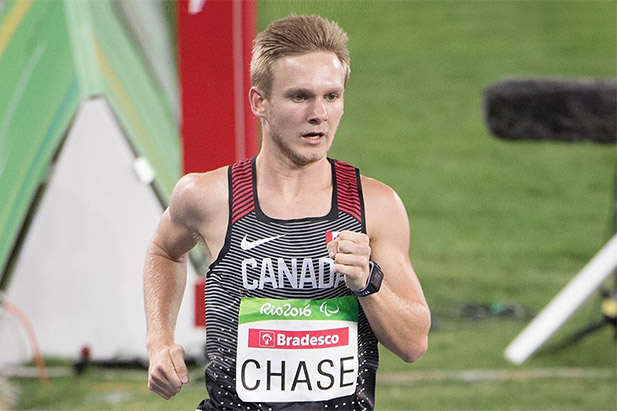UOIT student reflects upon competing at Rio 2016 Paralympic Games
Mitchell Chase now preparing for a career in Nuclear Engineering
October 3, 2016

First-year University of Ontario Institute of Technology (UOIT) student Mitchell Chase (Pickering, Ontario) may have missed out on Orientation activities, but the Nuclear Engineering student had a good reason. Chase was on a different kind of starting line in early September: a starting line in South America.
Chase is one of the country’s most promising middle-distance runners. He competed for Canada in the 1,500-metres at the Rio 2016 Paralympic Games in Brazil, missing the podium by just one spot with a fourth-place finish.
“Although I missed Orientation and the first few days of classes, I am proud to have had another opportunity to compete for my country in track and field,” says Chase.
Chase won gold in the 1,500 metres at the 2015 Parapan American Games in Toronto and also cracked the top ten in two events at last year’s world championships in Doha, Qatar.
“I began running cross-country in Grade 2 in public school and competed as an able-bodied athlete until my senior year at Pickering High School,” says Chase. “I was born with cerebral palsy, which affects my right leg. I transitioned to para athletics and became Ontario para-cross-country champion in 2014.”
As he switches gears from athletics to academics, he knows it’s time to be as fast a learner as he is a runner.
“I have been working diligently to catch up on missed work since returning from Rio. There will be more races to run down the road, but for now it’s time to focus on my studies and the promise of a future career in nuclear science and engineering.”
Chase also enjoys skiing and hockey and has achieved National Lifeguard Service Swim Instructors Certificates with Lifesaving Society and Red Cross.



